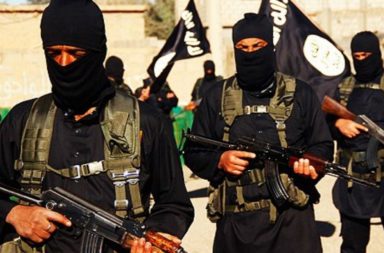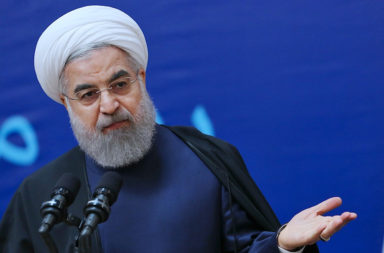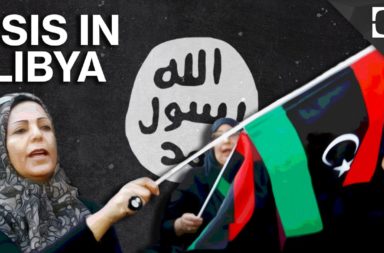The fight to free the Iraqi city of Mosul has started. GLOBALO documents the latest developments:
- On Sunday ISIS fled the Syrian village of Dabiq, where the group’s leadership had prophesied “an apocalyptic battle” between Islamic fighters and Western forces.
- Iraqi units began advancing against Mosul from the south, the country’s second-largest city with a population of now still up to 1,2 million (from two million in 2014), and an ISIS stronghold for the past two years since the terror organization conquered this important place, and the Iraqi Army just fled.
- Mosul is the main city of the Sunni minority in Iraq where the government is dominated by Shi’ites. For many Sunnis ISIS was as well a force to resist and protect against Bagdad. Many fear revenge by radical Shi’ite militias.
- 5,000 Sunni ISIS (IS, ISIL or Daesh) fighters are defending the city. ISIS named 7,000. If defeated, many foreign IS fighters will return to Europe.
https://t.co/S3MdCa1t7R pic.twitter.com/smxd4mP9h8
Families from Mosul find shelter in Syrian refugee camp pic.twitter.com/n5OVFLjQva
— AFP news agency (@AFP) 18. Oktober 2016
- 40,000 (Sunni) Peshmerga forces from Kurdistan-Iraq are involved in total, officially part of the Iraqi Army, but mainly independent from Bagdad. They conquered nine villages in an area measuring approximately 200 square kilometers in the east. They also secured an important part of the Erbil-Mosul road. “We have achieved a lot of success so far. This is the first time that the block of the Peshmerga forces and the Iraqi army are mixed and shared in the battlefield against the terrorist organization,”said Masoud Barzani, the president of the Kurdistan Regional Government.
- About 54,000 pro-government troops are involved in the operation, mainly Iraqi Army supported by special forces.
- 14,000 paramilitaries, including some from local Sunni tribes, joined the operation.
- ISIS already had “heavy losses of life and equipment” in the area southeast of Mosul.
- 500 US Special Operations personnel are advising the forces on the ground. 5,000 American work mainly as advisors in the country.
- The US, the UK, France, Turkey and others allies support the attack from the air.
- To free such a large city will take longer and needs an intense battle of several weeks.
- This coalition is very fragile and may fall apart after the conquer of Mosul. There is no real reconciliation policy yet in Shi’ite-dominated Bagdad for the Sunni and the Kurdish minorities. The Iraqi government trends to be more and more dependent on Shi’ite radical militias and Iran.
- Anthony Cordesman from CSIS warned: “In fact, the most critical aspect of the battle may not be whether ISIS is defeated. It may be whether Iraq’s deeply divided factions can find some way to cooperate if they win. The alternative could be worse than ISIS: Sunni versus Shi’ite, Arab versus Kurd, and Turkey, Iran, outside Arab states, and Russia all competing to serve their own ends. “Winning” could all too easily divide Iraq on a lasting basis and/or turn into new forms of civil conflict. Here, it is useful to hear about the preparations for the fight. The problem is the lack of any credible public statements as to how the Iraqi and U.S. governments will react once ISIS is defeated.” (his full statement below)
— The New York Times (@nytimes) 17. Oktober 2016
Deputy Spokesperson @Toner_Mark on Iraqi operation to liberate #Mosul.#MosulOps #Iraq https://t.co/nzHSSSWQTR
LTG Townsend statement on #Mosul op. This will be a long campaign. Coalition will support Iraqi forces throughout. https://t.co/m6Xc8zqnye
— Brett McGurk (@brett_mcgurk) 17. Oktober 2016
— Department of State (@StateDept) 17. Oktober 2016
Moment suicide bomber attacks Peshmerga forces during #Mosul #offensive https://t.co/Rv23CbxxSM More on Mosul op: https://t.co/VMg5Rt3ToW pic.twitter.com/w6HBvcle3K
— RT (@RT_com) 17. Oktober 2016
Officials confirm US troops are on the ground in Mosul https://t.co/G8RMGzfQB9
— The Guardian (@guardian) 17. Oktober 2016
U.S. Colonel John L. Dorrian describes the “very elaborate defenses” ISIS has built up in Mosul. @CJTFOIR/@CENTCOM. https://t.co/IuMMdM3Hb0
— Christiane Amanpour (@camanpour) 17. Oktober 2016
#Mosul Situation Map 17-10-2016#Iraq #Peshmerga #ISF pic.twitter.com/XfBhwvZTXY
— Res Publica (@_paulo34) 17. Oktober 2016
Dramatic footage shows U.S.-led airstrike on ISIS ‘car bomb factory’ in Mosul, Iraq. https://t.co/4D8n7DA4KP pic.twitter.com/inZegUBaob
— ABC News (@ABC) 17. Oktober 2016
In Pictures: As the battle for Mosul gets under way, hundreds of thousands of residents face imminent displacement https://t.co/jmXIlRh3QY pic.twitter.com/NOSYHDyHtC
— Al Jazeera English (@AJEnglish) 17. Oktober 2016
How can ISIS be defeated in Iraq and Syria ?
- To defeat the Islamic State (Daesh) at the very end, needs a clever Grand Double Strategy of power and reconciliation. with no less than 33 elements. The conquer of Mosul is just one important puzzle stone in the whole picture.
- America must support the Kurds better than before. Kurdish president Barzani and his team feel betrayed by the Americans.
- Reconciliation is needed and more autonomy for the Sunnis and Kurds and all other local populations in Iraq and Syria – strength by diversity. Only very loose and federal systems can safe the two artificial states of Syria and in Iraq, designed by outsiders and colonial powers France and the United Kingdom after World War I. Now the opposite is still implemented by the governments: very centralized systems. But these exist today only on paper.
What to expect from the battle for Mosul. https://t.co/3SxlE5dFXl
— CSIS (@CSIS) 18. Oktober 2016




